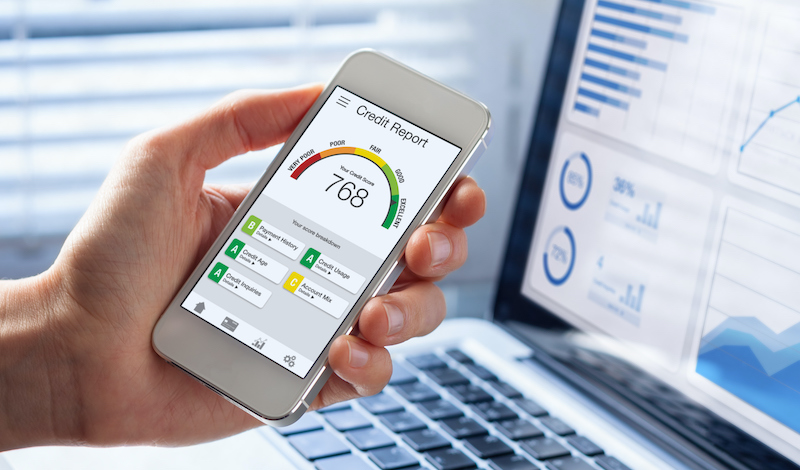The financial world is changing faster than ever, and artificial intelligence (AI) is leading the charge. From loan approvals to credit card offers, AI-driven credit scoring is transforming the way lenders decide who gets what. These smart systems analyze a mind-boggling array of data — far beyond your traditional credit report — promising faster, personalized, and smarter financial decisions. Sounds great, right? But there’s a catch. As banks and fintechs lean more heavily on AI, serious questions about privacy, fairness, and transparency are surfacing.

Speed, Smarts, and a Personal Touch
Traditional credit scoring? Pretty basic. Payment history, outstanding debt, how long you’ve had credit. That’s it. AI changes the game completely. These systems can consider hundreds — even thousands — of variables. Shopping habits, social media activity, phone usage… you name it. Decisions that used to take days now happen in seconds.
“AI allows us to spot people who are creditworthy but might have been overlooked,” says Maria Chen, a fintech data scientist. “This could really open doors for younger consumers or people in emerging markets who lack formal credit history.”
Startups are racing to harness this power. Upstart, Zest AI, and others boast that their AI models approve more loans while keeping default rates low. The competition? Fierce. And the promise? Life-changing.
But What About Privacy?
Here’s where it gets tricky. While AI credit scoring can open doors, it also peeks deep into our personal lives. Many of these models rely on mountains of sensitive data. Behavioral patterns, geolocation, device info — all under scrutiny.
Privacy advocates are sounding the alarm. “The real problem is transparency,” says Jonathan Feldman, a privacy lawyer. “People are being judged by algorithms they don’t understand. You get the convenience — yes — but at what cost?”
In countries with weak data protection, there’s little to stop companies from using AI models without proper oversight. Even in places with strict laws, regulations often lag behind the tech. It’s a classic race: innovation versus control.
Bias Hides in the Code
Privacy isn’t the only concern. AI models can be biased. Why? They learn from historical data. And historical data isn’t neutral. It reflects decades of social inequality.
Studies show some AI credit models unintentionally disadvantage minority groups. Applicants from certain neighborhoods might be labeled higher risk — even when their finances say otherwise. Regulators are starting to take notice, pushing lenders to make these systems fair and accountable.
“AI doesn’t automatically fix bias — sometimes it makes it worse,” Chen warns. “We have to constantly test and refine our models to prevent discrimination.”
Regulators Step In
Governments are slowly catching up. In the U.S., the Consumer Financial Protection Bureau (CFPB) has issued guidance stressing fairness, transparency, and explainability in credit algorithms. Meanwhile, Europe’s AI Act will classify credit scoring as high-risk, demanding strict oversight.
Banks and fintechs are responding with “explainable AI” — systems designed to show consumers why they got approved or rejected. The idea is simple: make AI understandable, not mysterious. And for the industry, it’s a chance to build trust while avoiding regulatory headaches.
A Double-Edged Sword for Consumers
So, what does this mean for everyday people? AI credit scoring is a double-edged sword. On one side, it offers faster approvals, personalized rates, and more access to credit. On the other, it can turn private behavior into a permanent record used to judge your financial reliability.
Transparency is key. Consumers need to know what data is being used, how it affects scores, and they should have the right to correct mistakes or opt out of invasive tracking. Without these safeguards, AI could create a new kind of financial inequality — not based on ability to repay, but on algorithmic profiling.

The Big Tech Factor
It’s not just fintechs. Big tech companies are eyeing this space, too. With data from e-commerce, social media, and digital wallets, tech giants could become powerful lenders. Apple, Google, Amazon — all exploring credit products linked to their ecosystems.
This could bring unprecedented convenience and personalization. But it also concentrates immense power and sensitive data in a handful of companies. The risks? Cyberattacks, algorithmic manipulation, even new forms of financial control.
Finding the Balance
The future of AI credit scoring is a delicate balancing act. Innovation can expand access. But privacy and fairness cannot be ignored. Lenders, regulators, and technologists must collaborate to create systems that are accountable and aligned with consumer interests.
For consumers, awareness is essential. Understanding AI’s impact on credit scores, asking questions, and advocating for privacy protections are steps you can take to stay in control.

Final Thoughts
AI-driven credit scoring is changing finance in ways we couldn’t have imagined a decade ago. It offers speed, accuracy, and broader access. But it also raises the stakes — privacy, bias, and concentrated power. The challenge ahead is clear: embrace the benefits without losing our rights, our fairness, and our personal control.
AI in credit scoring is both a lifeline and a minefield. And the real question is: will it empower us, or quietly redefine our financial lives without us even noticing?
Interested in AI trading impacts? Find out more